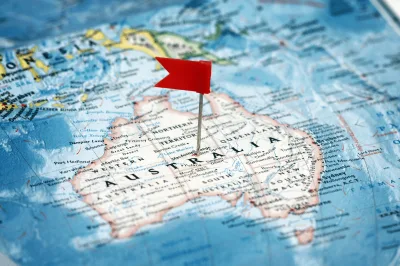On This Page...
ToggleDe Facto Visa Australia: Complete Guide for Couples
By Nilesh Nandan – Australian Immigration Lawyer, MyVisa® Immigration Lawyers
This blog is intended for discussion purposes only and does not constitute advice. You should seek independent legal advice before relying on any information provided on this site.
Immigration policies, systems, and processes can change without notice. I’d like to know your own experience with the immigration challenges noted above — feel free to contact me.
Table of Contents
Introduction
As an immigration lawyer, I meet hundreds of couples each year who are confused about what a “de facto visa” actually is. Many think it’s a separate visa subclass – it isn’t. Rather, “de facto” refers to your relationship type when applying for a Partner Visa in Australia.
If you are in a genuine, committed relationship but not legally married, you may be eligible for a de facto visa under either the onshore (Subclass 820/801) or offshore (Subclass 309/100) Partner Visa pathways. The law recognises your relationship if you can show that you and your partner have lived together for at least 12 months (or less, if registered under State law).
This guide explains everything — from proving your relationship, meeting eligibility, comparing onshore and offshore options, to avoiding costly mistakes that lead to refusals. Whether you’re already in Australia or applying from overseas, my goal is to help you understand exactly what to do and how to do it right the first time.
Understanding the De Facto Visa
The term “de facto visa” is commonly used but technically refers to the Partner Visa subclasses that apply to unmarried couples. Your relationship must meet the Migration Regulations 1994 definition of “de facto partner,” meaning you are not legally married, but have a genuine and continuing relationship and live together (or do not live apart permanently).
What the De Facto Visa Allows You to Do
- Live, work, and study in Australia while awaiting your visa outcome.
- Access Medicare (once the temporary stage visa is granted).
- Travel in and out of Australia freely once on the visa.
- Progress to permanent residence through the second stage of the Partner Visa.
Essentially, this visa recognises and protects genuine relationships that are not yet formalised by marriage, ensuring both partners can live together in Australia lawfully. ([immi.homeaffairs.gov.au](https://immi.homeaffairs.gov.au/visas/getting-a-visa/partner-onshore))
Eligibility Criteria for De Facto Partner Visa
To qualify for a de facto partner visa, you must demonstrate a relationship that satisfies strict legal requirements. These are set out under Regulation 1.09A of the Migration Regulations 1994.
Basic Eligibility Requirements
- You and your partner must be aged 18 or older.
- You must be in a genuine and continuing relationship to the exclusion of all others.
- You must live together or not live apart permanently.
- You must show that the relationship has existed for at least 12 months prior to application unless registered under state/territory law (e.g., NSW Relationship Register).
- Your partner must be an Australian citizen, permanent resident, or eligible New Zealand citizen.
Character and Health
Both partners must meet health and character requirements. This may include police checks from every country lived in for 12+ months and health examinations approved by Home Affairs.
Special Circumstances
There are exemptions to the 12-month rule. For example:
- If your relationship is registered under Australian State or Territory law.
- If compelling circumstances exist (e.g., children of the relationship, humanitarian protection).
- If you could not live together due to workplace, cultural, or visa restrictions but maintained evidence of commitment.
Proof of Relationship – The Core of Your Application
The single biggest reason partner visa applications fail is insufficient or inconsistent relationship evidence. Home Affairs assesses your relationship across four key factors:
- Financial aspects of the relationship
- Nature of the household
- Social aspects of the relationship
- Nature of your commitment to each other
Examples of Acceptable Evidence
| Category | Examples of Evidence |
|---|---|
| Financial | Joint bank accounts, shared bills, joint property lease or mortgage, tax declarations as partners. |
| Household | Shared rental agreements, joint utilities, correspondence to same address, photos of daily life. |
| Social | Photos together at family or social events, invitations addressed to both, statutory declarations from friends/family. |
| Commitment | Long-term plans, wills, superannuation beneficiaries, communication records showing emotional support. |
To strengthen your case, present your evidence in chronological order and include personal statements detailing how your relationship developed. The most convincing applications tell a consistent story supported by documentation.
Onshore vs Offshore De Facto Visa (820/801 vs 309/100)
You can apply for the partner visa as a de facto partner either while you are in Australia (onshore) or from outside the country (offshore). The two streams are structurally similar but differ in timing, processing, and conditions.
| Feature | Onshore (Subclass 820/801) | Offshore (Subclass 309/100) |
|---|---|---|
| Where You Apply | In Australia | Outside Australia |
| Temporary Stage | Subclass 820 (apply and stay in Australia while processing) | Subclass 309 (apply from overseas, may enter once granted) |
| Permanent Stage | Subclass 801 (usually assessed two years after 820) | Subclass 100 (assessed after 309) |
| Work Rights | Full work and study rights after 820 grant | Full work rights after 309 grant |
| Medicare | Eligible after 820 grant | Eligible once in Australia after 309 |
| Processing Time | 16–28 months on average | 15–29 months on average |
| Cost (as of 2025) | From AUD 8,850 | From AUD 8,850 |
| Advantages | Allows you to remain in Australia while waiting | Ideal if you cannot enter Australia yet |
| Disadvantages | Bridging visa delays if previous visa expires | No bridging visa protection before arrival |
For most couples already together in Australia, the onshore route offers convenience and security. However, offshore applications may suit those separated by border, work, or timing constraints.
Step-by-Step Application Process
The de facto partner visa involves two stages — temporary and permanent. You lodge one combined application and pay one fee.
- Confirm eligibility – ensure your relationship meets de facto criteria and that your partner is an eligible sponsor.
- Gather evidence – compile all documents proving your relationship across the four categories mentioned above.
- Create an ImmiAccount – all partner visa applications are lodged online.
- Complete the Partner Visa Application Form – provide accurate details about both partners.
- Your partner lodges the Sponsorship Form (Form 40SP) – this must be done soon after your main application.
- Upload documents – certified copies of passports, evidence, and statutory declarations (Form 888 from witnesses).
- Pay the visa fee – AUD 8,850 (as at 2025), payable once for both stages.
- Receive Bridging Visa (onshore only) – if your current visa expires while awaiting decision.
- Attend health and character checks – police clearances and medical exams.
- Wait for decision – first the temporary stage (820/309), then after ~2 years, the permanent stage (801/100).
For complex cases — e.g., previous visa cancellations or criminal records — seek professional assistance. I’ve represented clients who faced visa cancellations and visa refusals but succeeded on appeal by providing stronger, better-organised evidence.
Processing Time, Cost & Timeline
Cost
- Visa application charge: AUD 8,850 (main applicant).
- Additional applicant (18+): AUD 4,430.
- Additional applicant (under 18): AUD 2,215.
Processing Time (as at October 2025)
- 75% of applications: 16–28 months for Subclass 820.
- 90% of applications: up to 32 months for Subclass 801/100.
Timeline Overview
| Stage | Description | Average Duration |
|---|---|---|
| Preparation | Gathering documents, drafting forms | 1–3 months |
| Application lodgement | Online submission via ImmiAccount | Immediate |
| Bridging Visa (if onshore) | Activates after current visa expires | Varies |
| Temporary Visa Grant | Subclass 820/309 issued | 16–28 months |
| Permanent Visa Stage | Subclass 801/100 assessment | ~24 months after temporary stage |
Common Reasons for De Facto Visa Refusals
Visa refusals often happen not because the relationship is fake, but because the evidence fails to meet legal standards. Common reasons include:
- Insufficient evidence across one or more of the four relationship categories.
- Contradictions in personal statements and witness declarations.
- Failure to meet the 12-month cohabitation requirement or prove exemption.
- Incorrect or outdated statutory declarations (Form 888).
- Inconsistent address or travel records between partners.
- Not disclosing previous visa refusals or cancellations.
- Not providing certified translations for non-English documents.
If your application has been refused, it may still be reviewable at the Administrative Appeals Tribunal (AAT). My team frequently helps clients file successful appeals by fixing the evidence gaps that led to the initial refusal.
Real-Life Scenarios & Legal Insights
Case 1 – Student and Australian Citizen
Maria, an international student from Brazil, began living with her Australian partner while finishing her degree. They applied for the onshore de facto visa before her student visa expired. By showing joint bank accounts, shared lease, and social evidence, her 820 was granted within 20 months. She later obtained permanent residency under subclass 801.
Case 2 – Couple Living Apart Due to Work
Sanjay worked in Perth while his partner Priya was posted interstate. They saw each other monthly and maintained a joint bank account. Though living separately, they documented constant communication and registered their relationship in NSW, meeting exemption requirements. Their offshore application was approved after 24 months.
Case 3 – Visa Refusal Overturned
A de facto visa for a same-sex couple was initially refused due to inconsistent timelines in their statements. Upon appeal, we demonstrated the relationship history with additional witness declarations, digital communication logs, and statutory declarations correcting the errors. The AAT set aside the refusal and the visa was granted.
Evidence & Document Checklist
Before submitting your application, ensure you have the following:
- Identity documents (passports, birth certificates, photos).
- Relationship evidence: financial, household, social, and commitment proof.
- Police clearances for both partners.
- Health check results (authorised panel physician).
- Form 888 declarations from two or more Australian citizens or PRs.
- Proof of sponsor’s citizenship or PR status.
- Relationship registration certificate (if applicable).
- Translations of non-English documents.
- Cover letter summarising relationship and evidence.
Frequently Asked Questions
- How long does it take to get a de facto visa in Australia?
Processing times vary, but most onshore applications take 16–28 months for the temporary stage, and permanent stage follows about two years later.
- How much does the de facto visa cost?
The visa charge starts from AUD 8,850 for the main applicant, plus additional charges for family members.
- What happens if my relationship ends before the permanent stage?
Your visa may be cancelled unless there are special circumstances such as domestic violence or a child of the relationship.
- Can my de facto visa be refused under Section 501 (character grounds)?
Yes. If you fail the character test under Section 501 of the Migration Act 1958, your visa can be refused or cancelled. Seek legal representation immediately.
- Can I apply if we have not lived together for 12 months?
Yes, if your relationship is registered in an Australian state or there are compelling circumstances like having a child together.
- Do I need to be onshore for the permanent stage?
- Yes, for subclass 801, you must be in Australia at the time of decision; for 100, offshore at the time of decision.
Book a Consultation
The de facto visa process can feel overwhelming — but with the right guidance, it doesn’t have to be. I’ve helped thousands of couples navigate this complex area of law successfully, even after refusals or cancellations.
Book a consultation with me today to discuss your visa situation.
For further resources, visit Visa Refusals, Visa Cancellations, Partner Visas, and Contact MyVisa to arrange your consultation.
Legal Disclaimer
By Nilesh Nandan — Australian Immigration Lawyer, MyVisa®️ Immigration Lawyers
This blog is intended for discussion purposes only and does not constitute advice. You should seek independent legal advice before relying on any information provided on this site. Immigration policies, systems, and processes can change without notice. I’d like to know your own experience with the immigration challenges noted above — feel free to contact me.
MyVisa: Nilesh Nandan, Attorney at Law
BBus(Accy) LLB(QUT) GDLP MBA(IntBus)
Head of Practice





523 Responses
Hi guys, if you need help to get back your ex lovers or want any help whatsoever, you can email Lord Zakuza on Lordzakuza7 @ gmail. com for he’s a GOD on earth..
Hi I have been living at my partner’s home, who is an Australian citizen, regularly from past 9 months and on and off from past two years. We live in close proximity, two minutes drive away. He is separated not divorced yet but will soon apply for one sided divorce as his ex wife won’t return his calls. We have a genuine relationship, our familys know and all our friends and colleagues. We are in a relationship from past two and half years. My student visa expires in couple of months, can I apply for defacto. The only thing we don’t have is anything under our joint name, no bank account or home bills as we pay rent all inclusive.
What can we do to get past it?
We are planning to get married once divorce sorts, probably by mid of next year, what effect can it have on the application?
Hi.
I am married but not living wit my husband since 2 years.
I am in defacto relationship since 3 years and want to apply for partner visa.
I am not divorced lived at same house for few months with ex husband but now living with my partner since 2.5 years.
How do I prove that I am separated and now wish to apply for defacto visa
Hi Nilesh,
Currently I’m on a bridging visa for (491),and before lodging my 491 visa I was holding a 485 visa. My, question is that can I apply for a partner visa 820 while on bridging visa, and can I cancel my 491 application after lodging 820 while the 491 is not yet finalised or decided?
Thanks!
Hi,
Me and my partner have met while both working on a cruise ship and this is when our relationship started back in March 2019 since then we we have managed to see each other a few times in port of calls (when we ended up on different ships)and once for a month vacation together and we are in a constant long distance relationship and well Covid did not help us much to be able to see each other either. She is planning to come to Europe for like 3/4 weeks vacation what we could spend together as soon as borders are opening up and then around September time I wish to visit her in Australia. We wish to find a way to be able to stay together and have the chance to live together. could we still have chance for partner visa if we do not register in de facto? and not been living together at all? If I go out with a tourst visa and live together for 3month could that be enough? appreciate your advice.
Hi Nilesh, we applied partners visa onshore last January 2019, currently on BVA. When we applied as de facto, we didn’t not meet the criteria of 12 months living together but we have had compelling reason we included during the application. We get married early this year and updated immi account details. Im a little worried I might get refusal, what do you think I should do?
Hi Nilesh, I have a question regarding the de facto. Me and my partner( PR holder) have been in a relationship and lived together for 2 and half years. During that time i was onshore and had to extend my student visa and eventually apply for my grad visa (485), during the application for both visa’s I picked “never married” as the relationship status. At that time I wasn’t aware how the de facto relationship worked and thought i should first register my relationship to be considered as a de facto.
I applied for my Grad visa in Jan 2020 and registered my relationship in July ,What i am worried about is the Relationship status I had picked recently for my temp visa. Will this cause any issue and should i file a form 1023. How could I approach this?
Thank you in advance.